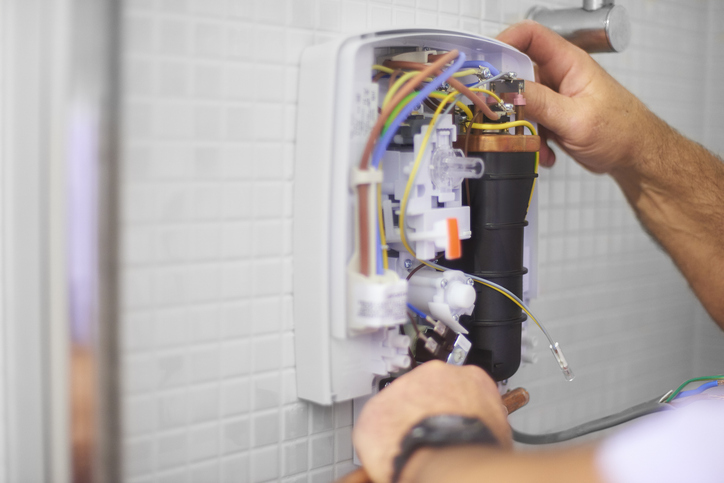Introduction
Tankless water heaters are praised for their efficiency and long-term cost savings, but water quality can quietly influence their performance. In regions like Arizona, hard water with high mineral content puts these systems at greater risk of damage. That’s where the need for tankless water heater repair in Sun City, AZ, becomes more frequent. While tankless models don’t store large volumes of water, they are still directly impacted by the water that flows through them daily. Sediment buildup, scale formation, and mineral deposits all contribute to mechanical stress and eventual malfunctions. Knowing how your water supply interacts with your unit is the first step to preventing premature wear, sudden breakdowns, and expensive service calls.
How Water Quality Affects Tankless Water Heater Repairs
1. How Hard Water Harms Tankless Heater Efficiency
Hard water, common in Sun City, contains elevated levels of calcium and magnesium. As these minerals pass through the heating elements of a tankless system, they form scale deposits that stick to the interior components. Over time, this build-up narrows water passageways and interferes with heat transfer, reducing system efficiency. The heater has to work harder to deliver the same temperature, which accelerates wear on parts like the heat exchanger. This stress may shorten the unit’s lifespan and trigger unexpected malfunctions.
2. Sediment Buildup and Flow Disruption
Even with built-in filtration, fine sediment and debris can collect inside the unit’s inlet filter or water pathways. These particles reduce water flow, leading to uneven heating or lukewarm output. In extreme cases, sediment causes pressure drops or activates safety shutdown features. Routine flushing helps, but neglect or delay in cleaning can prompt service needs earlier than expected. Sediment is especially problematic when combined with hard water, as it accelerates scale formation and clogs sensitive components.
3. Mineral Scale and Heat Exchanger Damage
The heat exchanger is a vital part of a tankless water heater—it’s where water gets heated instantly. Mineral-rich water constantly moving through this part leaves behind deposits that insulate the metal surface. This insulation makes heat transfer less effective and forces the heater to burn more energy. Over time, these deposits can cause hot spots, corrosion, and even cracking in the exchanger. Once damaged, this component is expensive to replace and often requires a technician’s intervention to keep the unit running safely.
4. The Importance of Regular Descaling for Prevention
Routine water heater maintenance in Peoria, AZ, that includes descaling helps slow mineral accumulation inside your unit. This process uses a vinegar or acidic solution to flush out calcium and magnesium deposits. If skipped for months or years, the scale becomes too hard to remove without dismantling the system. Professional plumbers recommend descaling once or twice a year in hard water regions, especially for homeowners who notice reduced hot water flow. Regular treatment not only improves heating efficiency but also minimizes the risk of costly internal damage.
5. How Water Filtration Protects Heater Components
Installing a whole-house water softener or pre-filter for your tankless heater helps reduce mineral exposure. Water softeners work by replacing calcium and magnesium with sodium ions, which don’t form scale. A pre-filter can trap sediment before it reaches the heater’s narrow tubing. These additions lower the likelihood of repair needs and maintain consistent performance throughout the year. While they represent an upfront investment, they’re far less expensive than repeated repair calls and part replacements due to untreated water issues.
Water quality plays a critical role in the longevity and reliability of tankless water heaters. Hard minerals and sediment can silently degrade performance, spike energy usage, and lead to part failures. Regular descaling, water testing, and filtration are essential tools for keeping these issues in check. Protecting your investment starts with understanding what flows through it.
Conclusion
Protect your system from damage caused by hard water. For expert water heater repair in Phoenix, AZ, call our experts at Plomero en Phoenix at (602) 730-4663—trusted service that keeps performance flowing strong.
📌 Phoenix’s Reliable Plumbing, Heating & AC Service You Can Trust!



